


Civil Service Newsletter Editorial Board
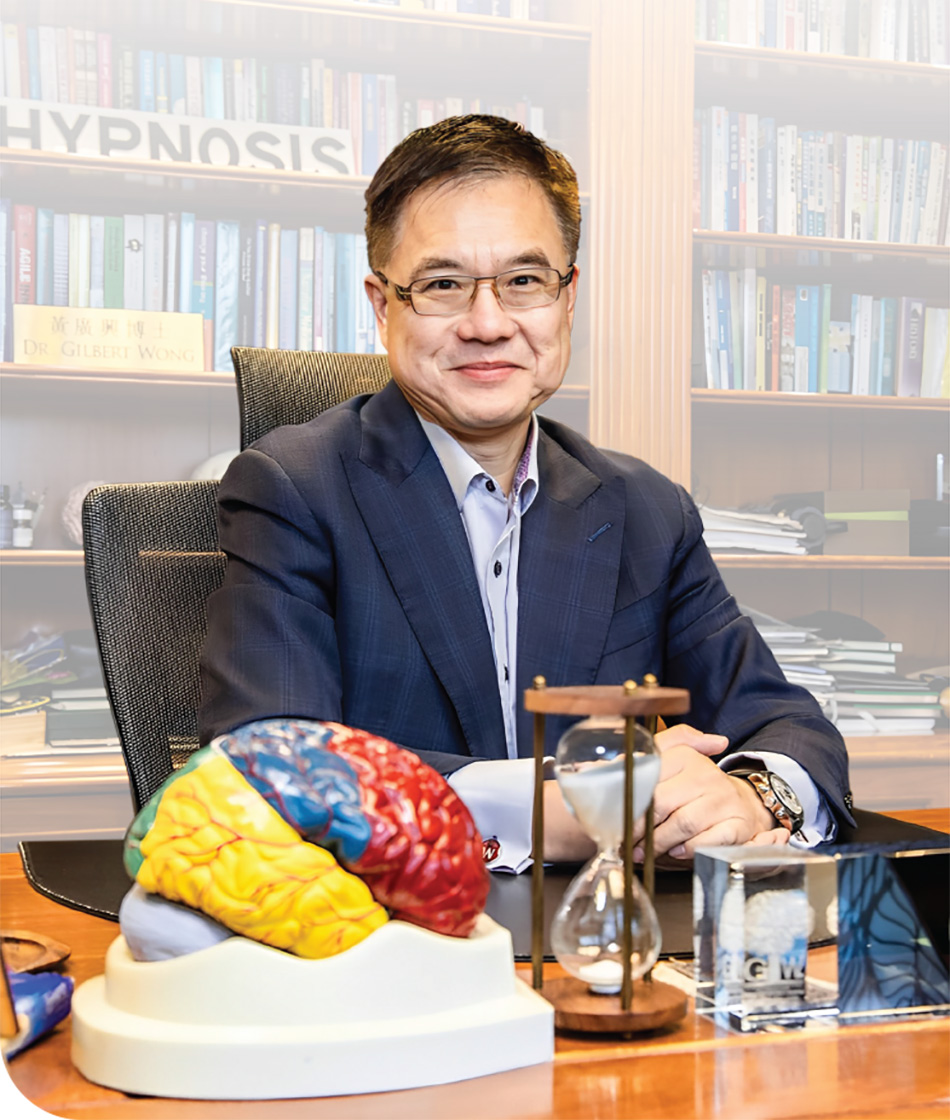
Back to the time when Mr Wong was still studying in Australia, one of his classmates who had been a police officer in the Police Force (the Force) for five years, recommended him to consider joining the Force after graduation. Mr Wong recalled, “My original plan is to continue with my postgraduate study in Hong Kong and pursue a career path in the field of psychology, yet I changed my mind and ended up applying for the post of police officer. I still remembered a female sergeant in the recruitment centre candidly advised me that it would be better for me to lose some weight first before applying. I then rose to the challenge and, within a month, lost some weight and passed the recruitment test. The nine-month training upon joining the Force was very challenging as I was not physically fit enough at that time, but finally I completed the training successfully. My classmate’s recommendation had enabled me to begin an incredibly fruitful career in the civil service.”
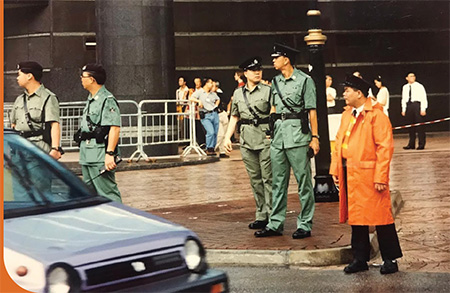
From the start of his career since 1993, Mr Wong had always been wishing to become a negotiator in the Force. As a pre-requisite, he had to perform his primary duties well before he could be recommended by his supervisors to join the Police Negotiation Cadre (PNC) as a negotiator. For the first few years in the Force, he worked mainly for frontline duties, which enabled him to gain hands-on and valuable experiences and build up confidence in discharging operational duties. And finally with his outstanding performance, he got recommended to join the PNC in 1999.
During his 22 years’ tenure in the PNC, Mr Wong worked in co-operation with colleagues of other fields in the Force, such as operations, crime, staff relations and service quality, in parallel with his frontline operational duties. He said, “The opportunity to work in the PNC made my career in the Force very challenging and meaningful, in addition to my primary duties as a district commander in the run-up to my retirement.”
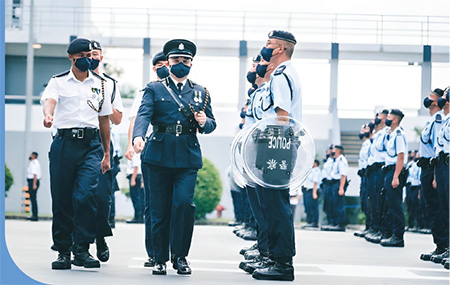
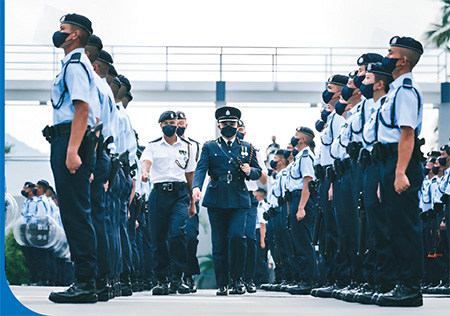
When Mr Wong shared what he considered to be most important for being a negotiator in the PNC, he started by quoting the motto of the PNC “Who Cares Wins”. He explained, “Our motto ‘Who Cares Wins’ encapsulates three core values for being negotiators, i.e. Passion, Nobility and Commitment. I always encourage my fellow negotiators to show their concerns to the person-in-need through their passion, nobility and commitment. In this way, you can always ‘win’. The negotiator wins, the person-in-need wins, and the society wins as well – ending in a win-win-win scenario.”
He continued, “Besides, the PNC has three ‘secret weapons’ for negotiation—active listening, teamwork and stress management. Firstly, active listening is very important. Many people may think that negotiators are good at talking. In fact, they need to be even better at listening to people. In a crisis situation, when you listen to people intensively, empathetically and passionately, you will engender a behavioural change in that person through expressing empathy, building rapport and trust, and positively influencing people—these are so-called interpersonal communication skills. Secondly we have to build up interpersonal communication skills among the negotiators, which is teamwork. I always remind my negotiators that teamwork is vital as we all have our own blind spots. We carefully select fellow negotiators from offices with a wide spectrum of backgrounds and expertise, so that we can cover the weaknesses and amplify the strengths of one another. Stress management is the third weapon. The PNC leverages a strong team of mental health professionals across the Force. The in-house clinical psychologists will provide professional advice to the PNC. They will also help in the pre-selection, selection and training of negotiators, as well as conducting aftermath debriefing for those who have handled crisis situations so as to deal with their own stress and emotions. This is an essential process.”
Apart from being a negotiator in the PNC, Mr Wong also made good use of his professional knowledge to promote positive psychology in the Force. He said, “The Force has established a robust peer support and counselling network within the PNC, called Carelinks Cadre, which aims at promoting positive psychological health and a caring culture across the Force. It is my pleasure to be the Founding Chairman of the Cadre. Apart from self-care, it is also important to take care of each other in a workplace, including your colleagues and subordinates, as well as your supervisors. Try to understand and help them to address their needs and worries.”
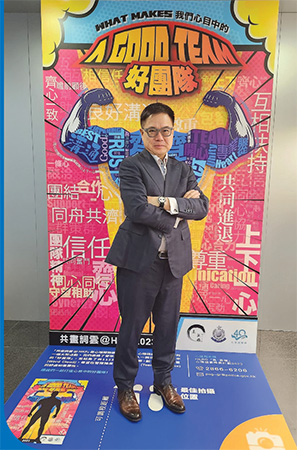
Besides, Mr Wong noted that many civil servants spend 20 to 40 years solely focusing on their careers, and only when they approach their retirement ages would they stop and think about their next step. Some retirees may experience mental health issues, such as depression or anxiety, after leaving their workplace and all the connected social networks at work—leaving them feeling like they had lost their identity. He advised, “Apart from your daily work, try to find something that you have passion towards. Many people are not quite sure about their passion and identity in life apart from being an employee at work. In order to have a smooth transition from working to retirement life, you have to plan and prepare for it in advance. It took me nearly five years to find my identity—and now I have written it down on my name cards: life adventurer, peacemaker, fear buster, conflict mediator and relationship builder. I feel very satisfied and happy with my identity even after I have left the Force.” On how long people should start preparing for their retirement, Mr Wong has learnt that it takes longer than one might think. He shared, “You might need around five to ten years to prepare yourself psychologically, financially and relationship-wise for your next stage of life after retirement. Sometimes, people may wish to start to a new career after retirement, which might require further study or professional certification and all these need some time to get done. Moreover, retirement is not only subject to your own planning; you may also need to plan from the family perspective—so you need some time to discuss the plan with your partner and other family members.”
Never a fan of the word “retirement”, Mr Wong prefers using the terms “transition” and “transformation” to describe what people do when they finish one stage of their career. After identifying his passion and identity, Mr Wong “transformed” and started his second career—becoming a practitioner in hypnotherapy and counselling which helps people grow in terms of wellness. A far cry from the swinging pendulums portrayed in the movies, he explained that hypnotherapy simply makes people feel relaxed in a safe and non-judgmental environment, which helps them express their deeper feelings. He explained, “I want to help people grow in four dimensions: physical, psychological, social and spiritual. Nowadays, I greatly emphasise a person’s spiritual well-being—this is not only about religion but rather about the core beliefs and values a person has. Many people don't know what to do with their lives and don't have a purpose or target at all—this becomes an important spiritual life question for them.”

At present, Mr Wong maintains his strong links with the Force through appointment as life-long consultant to the PNC, advisor to the Police College, and also consultant to the Carelinks Cadre. His network and negotiation toolboxes opened for him the door to another metamorphosis. He recalled, “I set up the Hong Kong Mental Wellness Association with some very passionate psychiatrists and psychologists. I can now use this platform to leverage my passion and help serve other people beyond the Force.”
Transformation of Mr Wong continues all along. After being the guest at a live radio interview about negotiation, he was invited to host a radio programme on psychological and emotional management on his own. Mr Wong jumped at the chance and recounted, “I set the theme of my programme as ‘mental health and well-being’, and then for the next thirteen weeks, at 1 pm every Friday, I invited thirteen of my best friends, who are psychologists, neurosurgeons, paediatricians and professors, for a chat and to share their wisdom on how to be happy.” What followed was a series of no less than 52 YouTube videos sharing positive advice on being happy and healthy.
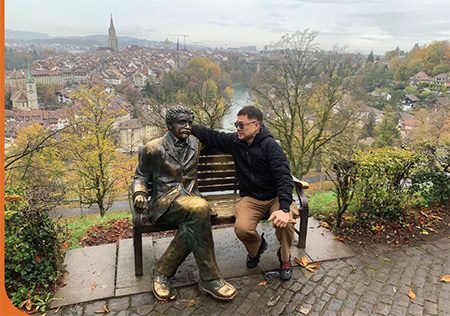
Mr Wong is grateful that after all these transformations, he can now turn off the five mobile phones he used to keep beside his bed for various special operations before retirement. He gratefully shared, “I now have a lot more time and have the liberty to do things that are most passionate to me. I can go to the gym twice a week, do yoga once a week, and meet one to two patients every day. I can arrange day-off to play, engage and connect with people.” More recently, Mr Wong started Qi Gong to further enhance his posture, movement, breathing and meditation. Moreover, he has successfully completed one marathon and six half-marathons. And when he is not above ground running marathons and helping people, Mr Wong goes underwater and helps others—as a rescue scuba diver.
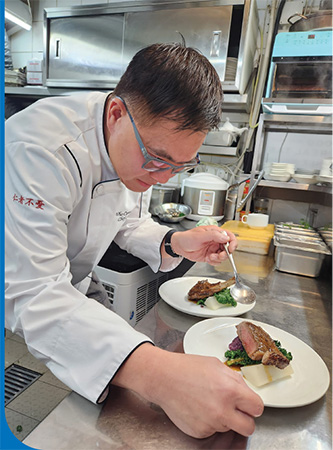
Lastly, My Wong shared a few words of advice to his counterparts working in the civil service, “To deal with mental health challenges, it is important to nurture strong social connections as taking care of each other can engender a positive and happy environment which is the key to happiness, longevity and meaningful life. With people who have lost their way, encourage them to explore their talents, focus on the area they are passionate about and then work on it. Being open-minded and listening to others’ needs are crucial as well. On the other hand, start planning your retirement at least five years ahead. Follow your heart, follow your passion and take care of yourself and those around you. If you ever experience a traumatic or challenging incident, seek help. Talk to people you trust and seek professional assistance. As soon as you start to open up, your problem will be halved with another person there helping you.”
To conclude, he quipped, “When I wake up every day, my first important task is to have a big breath. If I can breathe, I can do anything I have passion for. So remember to keep smiling and also to breathe.”